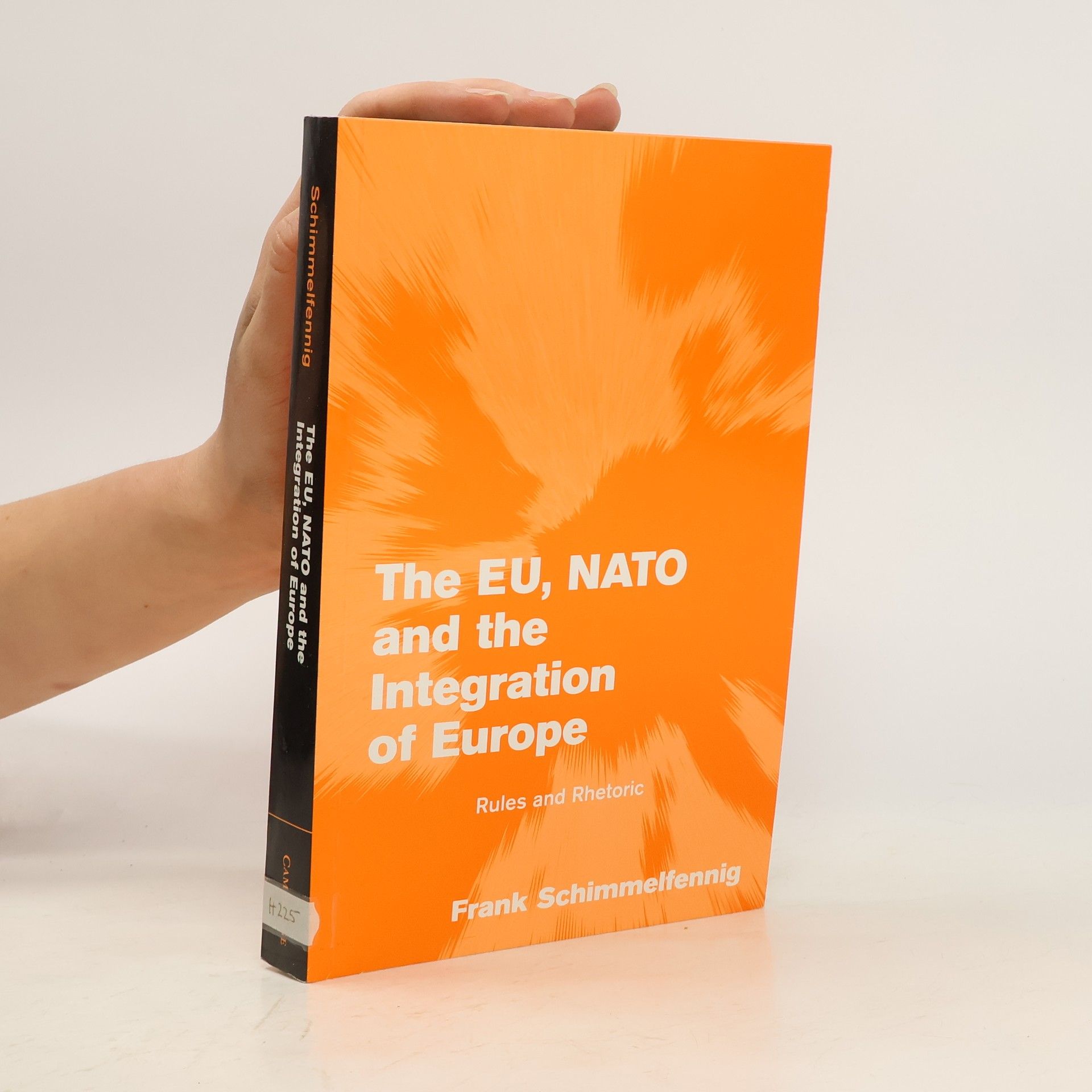The book offers a comprehensive empirical analysis of the impact of 'voluntaristic' and partially 'soft' European Union policies across all 15 member states. It explores how these policies influence member states' governance and decision-making processes, providing insights into the varying effects and adaptations within different national contexts. Through detailed case studies, the research highlights the nuances of EU policy implementation and its implications for cohesion among member states.
Thèmes de la gouvernance européenneSéries
Cette série explore le monde complexe de la gouvernance et de la politique européennes. Elle examine comment les institutions européennes, en particulier l'Union européenne, remodèlent les États-nations traditionnels. Les lecteurs y trouveront des analyses approfondies de thèmes clés tels que la citoyenneté, la protection sociale et la politique économique. La collection offre des perspectives théoriques et empiriques sur le paysage changeant de la gouvernance et de l'identité européennes.






Ordre de lecture recommandé
The EU, NATO and the Integration of Europe
- 338pages
- 12 heures de lecture
The book delves into the Eastern enlargement of the European Union and NATO, offering a theoretical framework of "rhetorical action" to explain the process. Utilizing original data and sociological institutional theory, it argues that the expansion is rooted in liberal democratic values and norms. The author emphasizes how the Western community employed shaming tactics to persuade opponents to support the enlargement, providing a unique perspective on the political dynamics at play during this significant historical development.
Europe's Foreign and Security Policy
- 308pages
- 11 heures de lecture
The book delves into the complexities of establishing a unified security and foreign policy within the European Union, highlighting the contentious debates surrounding this integration. Through comprehensive empirical research, including interviews and case studies, Michael Smith explores how foreign policy cooperation has been institutionalized in the EU. This insightful analysis is particularly relevant for scholars and researchers in international relations, law, foreign policy, and European studies, offering a detailed examination of the subject.
The Europeanisation of National Administrations
Patterns of Institutional Change and Persistence
- 276pages
- 10 heures de lecture
This book delves into the various factors affecting how administrative bodies adapt to European policies. It provides a comparative analysis, exploring the differences and similarities across regions or sectors. By examining the influences on administrative adjustment, the work highlights the complexities of policy implementation in a European context, offering insights into the challenges and strategies involved in aligning local practices with broader European standards.
The European Commission and the Integration of Europe
- 292pages
- 11 heures de lecture
Drawing on interviews with 137 high-ranking officials, this 2002 book offers a critical examination of the European Commission, questioning prevalent assumptions and shedding light on its inner workings. It provides insights into the motivations, challenges, and dynamics within the organization, revealing a nuanced understanding of its role in shaping European policy and governance.
This book delves into the intricate dynamics of Eastern enlargement, examining the political motivations and underlying causes behind the expansion of the European Union and NATO. It explores the implications of this enlargement for regional stability, security, and the shifting balance of power in Europe, providing a comprehensive analysis of the geopolitical landscape and the strategic interests at play in the integration of Eastern European nations.
European Integration and Political Conflict
- 294pages
- 11 heures de lecture
This 2004 volume, edited by Gary Marks and Marco Steenbergen, explores the ideological conflicts emerging from Europe's significant reallocation of authority. Featuring contributions from various scholars, it analyzes political contestation in the EU, revealing that these conflicts are deeply rooted in longstanding issues in Western European politics.
States and Regions in the European Union
- 284pages
- 10 heures de lecture
The analysis explores how Europeanization influences domestic politics and reshapes the dynamics between states and regions. It delves into the complexities of governance, highlighting the interactions and tensions that arise as regional entities respond to European integration. The book provides insights into the implications for political structures and the evolving nature of authority within member states.
The European Commission and the Integration of Europe
Images of Governance
- 292pages
- 11 heures de lecture
Challenging common assumptions about the European Commission, this book draws on interviews with 137 high-ranking officials to provide an in-depth analysis of its inner workings. It explores the complexities of decision-making and the dynamics of power within the Commission, offering insights into its influence on European governance. Through these firsthand accounts, the author unveils the realities of the Commission's role and its impact on policy-making in the European Union.
Complying with Europe
- 420pages
- 15 heures de lecture
The book offers a comprehensive empirical analysis of the impact of 'voluntaristic' and partially 'soft' EU policies across all 15 member states. It explores how these policies affect various aspects of governance and integration, providing insights into the effectiveness and challenges of EU strategies. Through detailed case studies, the research highlights the nuances of policy implementation and the varying responses from different nations, contributing to a deeper understanding of European Union dynamics.